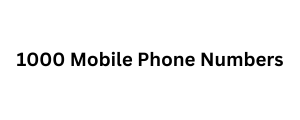Recently EUROSTAT, the statistical office of the European Union, published a report on household waste . Based on data from 2013, each Spaniard produced an average of 449 kilos of garbage annually, 1.2 kilos per day, below the community average of 481 kilos. Marieta and Santiago are a couple of environmental educators who work at the Gea Coop cooperative , based in Valladolid. Following the maxim “ do it yourself ” they have carried out an interesting experiment in their own home: becoming aware of the waste generated and implementing an environmental sustainability strategy in their home. From the first moment we considered it as a challenge, every day that you advance and continue with the project you feel stronger to continue in the game. Getting started is easy. Jjust look at your trash can and ask yourself a few questions.
How did you come up with this experiment?
Thus until. Rreducing their garbage can to 29 kilos in one year , 15 times less than the national average Santiago and I are very interested in issues of responsible consumption and environmental.Ssustainability and we collaborate with the National Center for Environmental Education (CENEAM), actively contributing to.Tthe writing of content and sustainability tips on the Hogares Verdes blog , which deals with issues such as Australia Phone Number List waste prevention in.Pprivate homes, organizations, schools, etc. It can be said that in our house we carry out. Aa consumption and prevention strategy based on. Eenvironmental responsibility. Not at all, we have always been environmentally responsible for. Tthe products we consume so the only new “job” was to weigh the garbage can once a day. We are even thinking about extending this environmental accounting system to the compost we make.
How do you classify waste?
So, motivated by . Ayear, we weighed our. Ggarbage bag, in which we put all the non-recyclable eleWe consider “garbage” any non-reusable, recyclable or compostable. Cconsumer material. Our game consisted of. Wweighing this “garbage” daily and developing a strategy to reduce it based on our responsibility as consumers: before purchasing.A product we asked ourselves if the product itself and the way of distribution were aligned. With principles of energy efficiency, proximity to producer for example, and.C ircular economy , ease of converting waste into resources. Within the 1000 Mobile Phone Number calculation of “garbage” we do not count some waste such as organic waste, which we compost to use in our home garden; glass, which has a high recycling rate, or paper and cardboard, depositing them in the appropriate containers or reusing them for some tasks. We have also “rescued from the landfill” some materials such as textiles.

